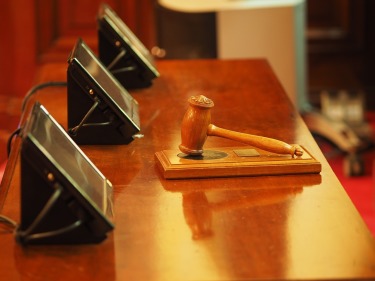
A special court will determine next month whether seven individuals accused in the 2008 Malegaon bombing face the death penalty, following an unexpected shift in the National Investigation Agency’s (NIA) prosecution strategy.
Judge AK Lahoti set May 8 as the judgment date after receiving the NIA’s final submission on Saturday – a hefty 1,500-page document that marked a complete change from the agency’s previous position on prime accused Sadhvi Pragya Singh Thakur, a former BJP MP.
The September 29, 2008 motorcycle bomb explosion in Nashik district’s Malegaon town claimed six lives and left more than 100 injured. The NIA now argues that all seven defendants – including military officers and religious figures – should face maximum punishment under anti-terror laws.
“If any terrorist activity results in death, the guilty can be sentenced to death,” explained Shahid Nadeem, legal counsel representing victims through Jamiat Ulema Maharashtra’s Legal Cell. The prosecution invoked Section 16 of the Unlawful Activities (Prevention) Act to justify this demand.
The NIA notably abandoned its earlier attempts to discharge Sadhvi Pragya, despite 32 of 323 witnesses retracting their testimonies. The agency maintains that remaining evidence proves the accused’s guilt, dismissing witness retractions as lacking credibility.
Evidence against Thakur includes her attendance at planning meetings and ownership of the motorcycle used in the bombing. “This alone shows her clear involvement,” asserted Sharif Sheikh, another lawyer representing victims.
The case marks the first major investigation linking right-wing groups to terrorism in India. Initially handled by Maharashtra’s Anti-Terror Squad, it transferred to NIA in 2011, with charges filed in 2016.
Controversy has shadowed the investigation. Former prosecutor Rohini Salian previously alleged she faced pressure to reduce charges against Thakur following a government change. “I refused to do so. That’s why I had to step away,” Salian had stated, sparking debates about political influence in the case.
Human rights lawyer Aslam Shaikh welcomed the NIA’s harder stance: “It may be late, but justice for the victims should not be further delayed.” However, political observer Arfa Khanum questioned the timing: “This raises serious questions about the credibility and consistency of investigative agencies under political pressure.”
The victims’ families, waiting nearly two decades for resolution, remain focused on justice. “We lost our loved ones. All we ask is justice,” said Abdul Rahman, whose relative died in the blast.
Beyond Thakur, the accused include Lieutenant Colonel Prasad Purohit, Major Ramesh Upadhyay (retired), Ajay Rahirkar, Sameer Kulkarni, Swami Dayanand Pandey, and Sudhakar Chaturvedi – all currently on bail.
The prosecution’s comprehensive 1,389-page argument document details each defendant’s alleged role, seeking penalties ranging from death to life imprisonment.
This case continues to spark national debate about terrorism investigations, political influence, and justice delivery in India’s legal system, with its resolution potentially setting significant precedents for future terror trials.




